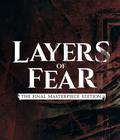"If the First Amendment is versatile enough to 'shield [the] painting of Jackson Pollock, music of Arnold Schoenberg, or Jabberwocky verse of Lewis Carroll,' we see no reason why the pictures, graphic design, concept art, sounds, music, stories, and narrative present in video games are not entitled to a similar protection," the court said in its ruling. "The mere fact that they appear in a novel medium is of no legal consequence."
St. Louis County had argued that stories are incidental in games, and players often skip straight to the action. The court acknowledged this, but noted the same could be said of today's action-packed movies, such as "The Matrix." Additionally, it said, home viewers of these films can easily skip to the action sequences using their DVD players or VCRs.
"The fact that modern technology has increased viewer control does not render movies unprotected by the First Amendment, and equivalent player control likewise should not automatically disqualify modern video games," the court said.











